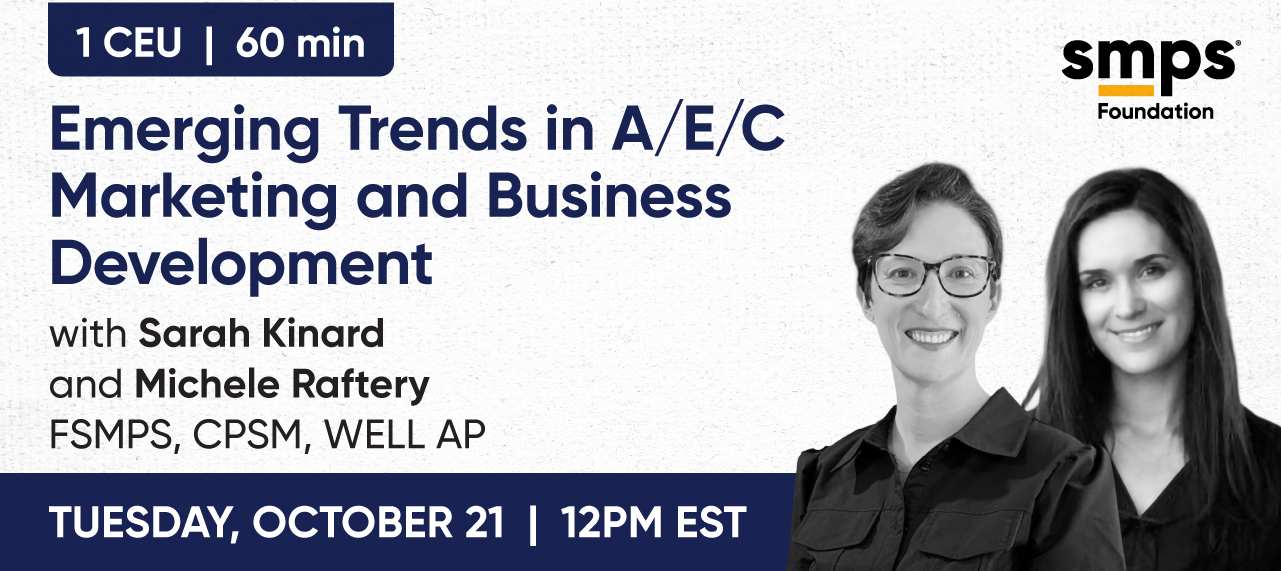
Financial Updates and Best Practices for Chapters
Overview
The Society is more than halfway through the new fiscal year. Our expenses are under control and the income statement is in the black. Nandi Rice at HQ has been a rock star bringing in sponsors. And the HQ team and Amplify A|E|C Conference Committee shattered their goals for attendance and revenue this year!
Chapters are approaching the end of your program and fiscal year. Officially you have about two weeks left. Are you ready?” Please change to “Chapter program and fiscal years have come to an end. Are you ready to kick off the new year?
SMPS HQ transitioned to a calendar fiscal year for 2025, and chapters are transitioning in 2026. To make sure we are all on the same page, the structure is the following:
- Chapter boards starting September 1, 2025, will serve until December 31, 2026.
- There will be a short fiscal year from September 1, 2025, to December 31, 2025.
- Then chapters will be on a calendar fiscal year, January 1, 2026, to December 31, 2026, and stay on the calendar fiscal year going forward.
Later this year, treasurers will receive details for what is necessary to close-out the short 2025 fiscal year.
In the May issue of Money Matters, I talked about building your budget. Grace Rundelli, treasurer from my home chapter, SMPS Northeast Ohio, put together a well-organized budget worksheet in Excel, that is easy to update and modify. She was willing to share it, so if you don’t have a budget worksheet, or you want to better organize your chapter finance tracking, check out the SMPS Chapters Draft Budget in the MySMPS All Chapter Leaders Community. The budget worksheet is designed as a planning and summary; day-to-day operations and tracking are done in re:Members (formerly Bill Highway).
The spreadsheet has seven tabs: Budget Summary, Income, Income Breakdown, Board Expenses, Board Expenses Breakdown, Operating Expenses, and Operating Expenses Breakdown.
The Budget Summary tab summarizes Income, Board Expenses, and Operating Expenses – these last three tabs are where you enter your estimates at the beginning of your fiscal year.
The Breakdown tabs are where you enter your actual income and expense values.
Chapters in poor financial health may want to consider starting a new budget from scratch, staying conservative in your estimates for income and expenses. The chapter leadership should work to determine the cause of the financial struggles and make a realistic plan to fix the issues. If your chapter would like assistance developing your budget, reach out to antonio@smsp.org at HQ.
I Will Teach You to be Rich by Ramit Sethi
The title sounds like click-bait or sensationalized; however, this is an excellent read or listen if you prefer audiobooks.
It’s not about mansions and Ferraris. Sethi wants people to live a rich life, enjoying the things they love whether it be travel, experiences, clothing, cars, etc. Save and spend for the things that make you happy and be frugal or mindful of the things that don’t. You don’t have to “keep up with the Joneses.”
In the book, Sethi breaks down his six-week personal finance program. A practical approach delivered with a nonjudgmental style based around the four pillars of personal finance: banking, saving, budgeting, and investing.
I read the book a few years ago and found it to be very helpful in the way I deal with my personal finances.
Many years ago, I was the SMPS Northeast Ohio treasurer, and I survived. I learned a lot, and the chapter stayed afloat. Volunteering as the chapter treasurer can provide knowledge and skills many other marketers or BD professionals lack. If you have desires to move up through your career, having some financial acumen can be a game changer.
Don’t let the position of treasurer scare you. The greatest skill you need is organization.
I reached out to Grace Rundelli, treasurer of SMPS Northeast Ohio to ask a few questions about her experience as chapter treasurer with today’s tools. Grace will be starting her second term in September. The three main areas or tasks are running the financial statements for our board meeting, reconciling the deposits with our registrations/sponsorships, and managing the credit cards through re:Members (BillHighway). She spends approximately an hour a week on SMPS treasurer responsibilities. Taking on this role has made Grace much more confident in her decision-making and has introduced her to new people outside of the chapter. The treasurer role is not as challenging as she thought when she was recruited.
Grace provides these words of wisdom for new treasurers (or those considering the role). “It is really not as scary as it may seem. Once you get your own processes and procedures nailed down it will come easily. The re:Members knowledge base is extremely useful and a great tool!”
Our chapter was one of the last to implement re:Members. Grace took on this transition last year and made it seamless for the chapter and board. It added a few hours of work to implement the transition, but now she’s back to an hour a week.
If you need assistance with anything financial for your chapter, please reach out to SMPS HQ Chief Finance and Operations Officer, Antonio Payne (antonio@smps.org), or to me at akilbourne@tecinceng.com.
There are several key best practices that promote fiscal responsibility and transparency that chapters should follow:
Core Financial Responsibilities
- Maintain Accurate, Timely Records – Use re:Members (BillHighway), reconcile monthly, and retain documentation
- Prepare Regular Financial Reports – Share monthly/quarterly P&L, balance sheet, and budget vs. actual comparisons with your board of directors
- Develop and Monitor the Budget – Collaborate with board and committees, monitor spending, and recommend changes
Governance and Oversight
- Ensure Internal Controls – Implement dual signatories, clear reimbursement policies, and avoid commingling funds
- Stay in Compliance – File IRS 990 forms, renew state registrations, and protect non-profit status
Strategic Role and Communication
- Educate and Advise the Board – Explain financials to non-financial board members and flag concerns
- Ensure Transparency – Grant board access to financials and present updates at member meetings
Chapter-Specific Functions
- Track Event and Program Finances – Forecast and track event budgets and break-evens
- Coordinate with HQ – Submit reports and align with national policies
Operational Best Practices
- Maintain Financial Continuity – Document procedures and train successors; use chapter-specific accounts
- Leverage Technology – Use tools like Google Drive, Expensify, or Bill.com to streamline operations
See you next time for Money Matters!
Adam Kilbourne, FSMPS, CPSM
SMPS Secretary-Treasurer
akilbourne@tecinceng.com














